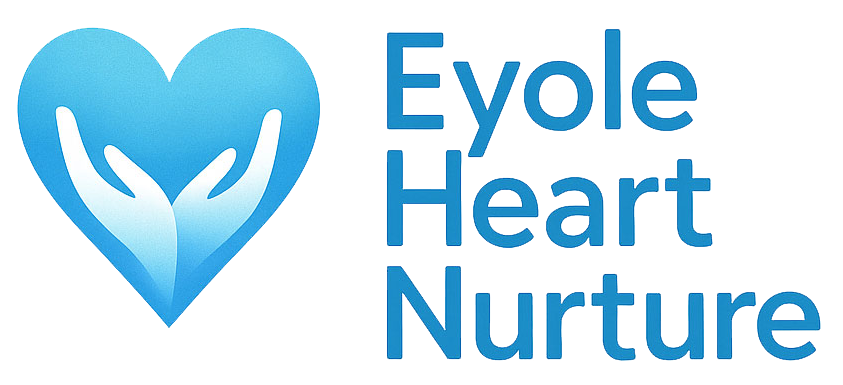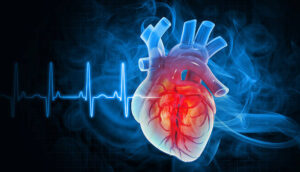Imagine Amina, a forty year old mother 0f two, feeling the brunt of the midday sun. She remembers some simple steps that keep her heart safe during those hot afternoons: drinking plenty of water, eating fresh fruits and salads that refresh her body, and staying in the shade whenever possible. Inside her house, she draws the curtains and opens windows in the cooler hours to keep the air flowing. She wears light, loose clothes and avoids going out between 11 a.m. and 3 p.m., the hottest part of the day.
If you ever feel dizzy or weak in the heat, like Amina once did, move to a cooler spot, lie down with your feet elevated, drink water slowly, and cool your skin with a wet cloth. If these symptoms continue, it’s important to see a doctor quickly.
Here’s why!
The Connection Between Heat and cardiovascular disease
In Cameroon, especially during the hot seasons, the heat can deeply affect your heart health. When temperatures rise high, your heart has to work much harder to cool your body down. This extra effort raises the risk of serious problems like heart attacks, irregular heartbeats, and even heart failure.
Research shows that about one in four heat-related deaths happen because the heart and blood vessels are overwhelmed by high temperatures. The risk grows when temperatures reach tropical highs around 35°C to 43°C (95°F to 109°F), a range common in some countries during heat waves.
Dr. Aaron Bernstein from Harvard reminds us that climate change is causing hotter and more frequent heat waves. This is especially dangerous for people already living with heart conditions.
Protecting Your Heart During Hot Days
Everyone feels the heat, but if you have heart problems, you must be extra careful. Here are simple ways to care for your heart:
- Always watch the weather forecast and stay indoors when there is a heat advisory. If your home is very hot, look for public cooling places in your community. The early morning and late evening hours are usually cooler for going outside.
- Drink water regularly, about a cup every 20 minutes, even if you don’t feel thirsty. This is because One of the most important ways your body tries to cool down is through sweating, which can cause you to lose a lot of fluids. If you don’t drink enough water to replace what you sweat out, your blood pressure may drop too low, which can be dangerous. Staying hydrated helps blood circulate properly and reduces strain on your heart. If you have heart failure or take water pills, check with your doctor about the right amount.
- Avoid sugary soft drinks, fruit juices, and limit alcohol since they can make it harder for your body to stay hydrated.
- Protect your skin from the sun. Wear a wide-brimmed hat, sunglasses, and loose, light-colored clothing. Use a sunscreen with at least SPF 30 and reapply it every hour.
By taking these steps, you help your heart stay strong and healthy in warm climate. Learn about 5 steps to help your patients stay safe on hot days here.
Next Steps
Internal heat from anger, dissatisfaction, and bitterness can harm not only our spirit but also defile our hearts, as the Bible teaches. Matthew 15:18-19 says, “But the things that come out of a person’s mouth come from the heart, and these things defile a man. For out of the heart come evil thoughts, murder, adultery, sexual immorality, theft, false testimony, and slander.” This spiritual defilement weighs heavily upon us, much like physical dehydration affects the body. Just as we must hydrate physically to maintain health, we must also cleanse our hearts by releasing bitterness and anger. Ephesians 4:31 encourages us to “get rid of all bitterness, rage, and anger, brawling and slander, along with every form of malice.” Letting go of this internal heat brings peace and healing, freeing us from burdens that can defile and weaken the heart. Nurturing our hearts both physically and spiritually through hydration and forgiveness is essential for true heart health. At Eyole Heart Nurture, your heart health is our priority. Take our free heart test today.
Frequently Asked Questions
Does the heat affect your heart?
Yes, hot weather forces your heart to work harder to cool your body, increasing stress on the cardiovascular system. This can raise the risk of heart attacks or heart failure, especially in people with existing heart problems.
What temperature is too hot for heart patients?
Temperatures above 30°C (86°F) start to pose risks, with significantly increased danger in extreme heat above 35°C (95°F), when cooling mechanisms strain the heart especially in vulnerable patients.
Is sweating good for your heart?
Sweating helps regulate body temperature, which supports heart function by preventing overheating. However, excessive sweating without replacing fluids can strain the heart.
Is AC good for heart patients?
Yes, air conditioning helps maintain a stable, cool environment, reducing heat stress on the heart and preventing dehydration in hot weather.





